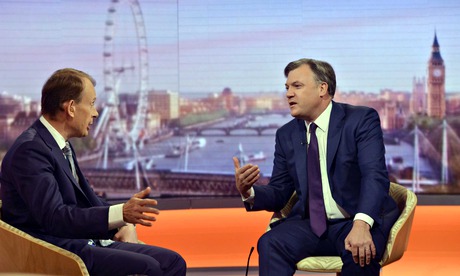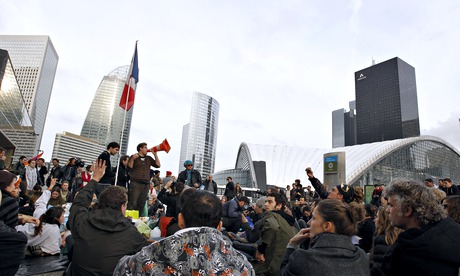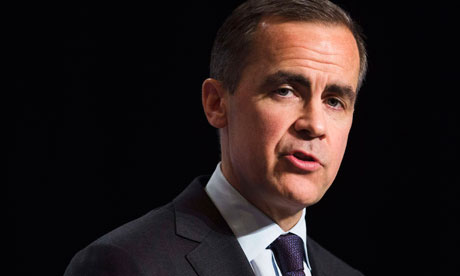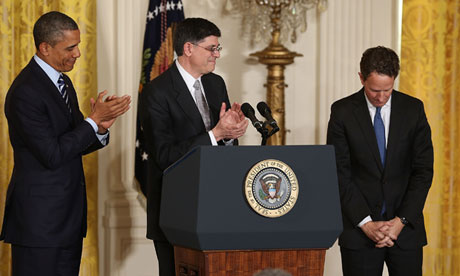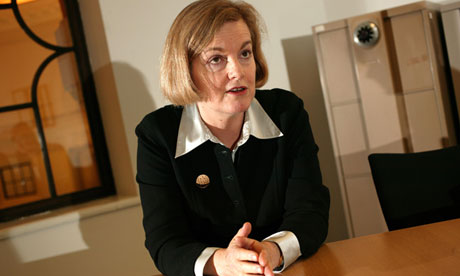Indian author Arundhati Roy wants the world to know that her country is under the control of its largest corporations.
"Wealth has been concentrated in fewer and fewer hands," Roy tells the Georgia Straight by phone from New York. "And these few corporations now run the country and, in some ways, run the political parties. They run the media."
The Delhi-based novelist and nonfiction writer argues that this is having devastating consequences for hundreds of millions of the poorest people in India, not to mention the middle class.
Roy spoke to the Straight in advance of a public lecture on Tuesday (April 1) at 8 p.m. at St. Andrew's–Wesley United Church at the corner of Burrard and Nelson streets. She says it will be her first visit to Vancouver.
In recent years, she has researched how the richest Indian corporations—such as Reliance, Tata, Essar, and Infosys—are employing similar tactics as those of the U.S.-based Rockefeller and Ford foundations.
She points out that the Rockefeller and Ford foundations have worked closely in the past with the State Department and Central Intelligence Agency to further U.S. government and corporate objectives.
Now, she maintains that Indian companies are distributing money through charitable foundations as a means of controlling the public agenda through what she calls "perception management".
This includes channelling funds to nongovernmental organizations, film and literary festivals, and universities.
She acknowledges that the Tata Group has been doing this for decades, but says that more recently, other large corporations have begun copying this approach.
Private money replaces public funding
According to her, the overall objective is to blunt criticism of neoliberal policies that promote inequality.
"Slowly, they decide the curriculum," Roy maintains. "They control the public imagination. As public money gets pulled out of health care and education and all of this, NGOs funded by these major financial corporations and other kinds of financial instruments move in, doing the work that missionaries used to do during colonialism—giving the impression of being charitable organizations, but actually preparing the world for the free markets of corporate capital."
She was awarded the Booker Prize in 1997 for The God of Small Things. Since then, she has gone on to become one of India's leading social critics, railing against mining and power projects that displace the poor.
She's also written about poverty-stricken villagers in the Naxalite movement who are taking up arms across several Indian states to defend their traditional way of life.
"I'm a great admirer of the wisdom and the courage that people in the resistance movement show," she says. "And they are where my own understanding comes from."
One of her greatest concerns is how foundation-funded NGOs "defuse people's movements and...vacuum political anger and send them down a blind alley".
"It's very important to keep the oppressed divided," she says. "That's the whole colonial game, and it's very easy in India because of the diversity."
Roy writes a book on capitalism
In 2010, there was an attempt to lay a charge of sedition against her after she suggested that Kashmir is not integral to India's existence. This northern state has been at the centre of a long-running territorial dispute between India and Pakistan.
"There's supposed to be some police inquiry, which hasn't really happened," Roy tells the Straight. "That's how it is in India. They...hope that the idea of it hanging over your head is going to work its magic, and you're going to be more cautious."
Clearly, it's had little effect in silencing her. In her upcoming new book Capitalism: A Ghost Story, Roy explores how the 100 richest people in India ended up controlling a quarter of the country's gross-domestic product.
The book is inspired by a lengthy 2012 article with the same title, which appeared in India's Outlook magazine.
In the essay, she wrote that the "ghosts" are the 250,000 debt-ridden farmers who've committed suicide, as well as "800 million who have been impoverished and dispossessed to make way for us". Many live on less than 40 Canadian cents per day.
"In India, the 300 million of us who belong to the post-IMF 'reforms' middle class—the market—live side by side with spirits of the nether world, the poltergeists of dead rivers, dry wells, bald mountains and denuded forests," Roy wrote.
The essay examined how foundations rein in Indian feminist organizations, nourish right-wing think tanks, and co-opt scholars from the community of Dalits, often referred to in the West as the "untouchables".
For example, she pointed out that the Reliance Group's Observer Research Foundation has a stated goal of achieving consensus in favour of economic reforms.
Roy noted that the ORF promotes "strategies to counter nuclear, biological and chemical threats". She also revealed that the ORF's partners include weapons makers Raytheon and Lockheed Martin.
Anna Hazare called a corporate mascot
In her interview with the Straight, Roy claims that the high-profile India Against Corruption campaign is another example of corporate meddling.
According to Roy, the movement's leader, Anna Hazare, serves as a front for international capital to gain greater access to India's resources by clearing away any local obstacles.
With his white cap and traditional white Indian attire, Hazare has received global acclaim by acting as a modern-day Mahatma Gandhi, but Roy characterizes both of them as "deeply disturbing". She also describes Hazare as a "sort of mascot" to his corporate backers.
In her view, "transparency" and "rule of law" are code words for allowing corporations to supplant "local crony capital". This can be accomplished by passing laws that advance corporate interests.
She says it's not surprising that the most influential Indian capitalists would want to shift public attention to political corruption just as average Indians were beginning to panic over the slowing Indian economy. In fact, Roy adds, this panic turned into rage as the middle class began to realize that "galloping economic growth has frozen".
"For the first time, the middle classes were looking at corporations and realizing that they were a source of incredible corruption, whereas earlier, there was this adoration of them," she says. "Just then, the India Against Corruption movement started. And the spotlight turned right back onto the favourite punching bag—the politicians—and the corporations and the corporate media and everyone else jumped onto this, and gave them 24-hour coverage."
Her essay in Outlook pointed out that Hazare's high-profile allies, Arvind Kerjiwal and Kiran Bedi, both operate NGOs funded by U.S. foundations.
"Unlike the Occupy Wall Street movement in the US, the Hazare movement did not breathe a word against privatisation, corporate power or economic 'reforms'," she wrote in Outlook.
Narendra Modi seen as right-wing saviour
Meanwhile, Roy tells the Straight that corporate India is backing Narendra Modi as the country's next prime minister because the ruling Congress party hasn't been sufficiently ruthless against the growing resistance movement.
"I think the coming elections are all about who is going to crank up the military assault on troublesome people," she predicts.
In several states, armed rebels have prevented massive mining and infrastructure projects that would have displaced massive numbers of people.
Many of these industrial developments were the subject of memoranda of understanding signed in 2004.
Modi, head of the Hindu nationalist BJP coalition, became infamous in 2002 when Muslims were massacred in the Indian state of Gujarat, where he was the chief minister. The official death tollexceeded 1,000, though some say the figures are higher.
Police reportedly stood by as Hindu mobs went on a killing spree. Many years later, a senior police officer alleged that Modi deliberately allowed the slaughter, though Modi has repeatedly denied this.
The atrocities were so appalling that the American government refused to grant Modi a visitor's visa to travel to the United States.
But now, he's a political darling to many in the Indian elite, according to Roy. A Wall Street Journal report recently noted that the United States is prepared to give Modi a visa if he becomes prime minister.
"The corporations are all backing Modi because they think that [Prime Minister] Manmohan [Singh] and the Congress government hasn't shown the nerve it requires to actually send in the army into places like Chhattisgarh and Orissa," she says.
She also labels Modi as a politician who's capable of "mutating", depending on the circumstances.
"From being this openly sort of communal hatred-spewing saccharine person, he then put on the suit of a corporate man, and, you know, is now trying to play the role of the statesmen, which he's not managing to do really," Roy says.
Roy sees parallels between Congress and BJP
India's national politics are dominated by two parties, the Congress and the BJP.
The Congress maintains a more secular stance and is often favoured by those who want more accommodation for minorities, be they Muslim, Sikh, or Christian. In American terms, the Congress is the equivalent of the Democratic Party.
The BJP is actually a coalition of right-wing parties and more forcefully advances the notion that India is a Hindu nation. It often calls for a harder line against Pakistan. In this regard, the BJP could be seen as the Republicans of India.
But just as left-wing U.S. critics such as Ralph Nader and Noam Chomsky see little difference between the Democrats and Republicans in office, Roy says there is not a great deal distinguishing the Congress from the BJP.
"I've said quite often, the Congress has done by night what the BJP does by day," she declares. "There isn't any real difference in their economic policy."
Whereas senior BJP leaders encouraged wholesale mob violence against Muslims in Gujarat, she notes that Congress leaders played a similar role in attacks on Sikhs in Delhi following the 1984 assassination of then–prime minister Indira Gandhi.
"It was genocidal violence and even today, nobody has been punished," Roy says.
As a result, each party can accuse the other of fomenting communal violence.
In the meantime, there are no serious efforts at reconciliation for the victims.
"The guilty should be punished," she adds. "Everyone knows who they are, but that will not happen. That is the thing about India. You may go to prison for assaulting a woman in a lift or killing one person, but if you are part of a massacre, then the chances of your not being punished are very high."
However, she acknowledges that there is "some difference" in the two major parties' stated idea of India.
The BJP, for example, is "quite open about its belief in the Hindu India...where everybody else lives as, you know, second-class citizens".
"Hindu is also a very big and baggy word," she says to clarify her remark. "We're really talking about an upper-caste Hindu nation. And the Congress states that it has a secular vision, but in the actual playing out of how democracy works, all of them are involved with creating vote banks, setting community against community. Obviously, the BJP is more vicious at that game."
Inequality linked to caste system
The Straight asks why internationally renowned authors such as Salman Rushdie and Vikram Seth or major Indian film stars like Shahrukh Khan or the Bachchan family don't speak forcefully against the level of inequality in India.
"Well, I think we're a country whose elite is capable of an immense amount of self-deception and an immense amount of self-regard," she replies.
Roy maintains that Hinduism's caste system has ingrained the Indian elite to accept the idea of inequality "as some kind of divinely sanctioned thing".
According to her, the rich believe "that people who are from the lower classes don't deserve what those from the upper classes deserve".
Her comments on corporate power echo some of the ideas of Canadian activist and author Naomi Klein.
"Of course, I know Naomi very well," Roy reveals. "I think she's such a fine thinker and of course, she's influenced me."
However, she suggests that the concentration of media ownership in India makes it very difficult for most reporters to reveal the extent of corporate control over society.
"In India, if you're a really good journalist, your life is in jeopardy because there is no place for you in a media that's structured like that," Roy says.
On occasions, mobs have shown up outside her home after she's made controversial
statements in the media.
She says that in those instances, they seemed more interested in performing for the television cameras than in attacking her.
However, she emphasizes that other human-rights activists in India have had their offices trashed by demonstrators, and some have been beaten up or killed for speaking out against injustice.
This is one reason why she argues that it's a fallacy to believe that because India holds regular elections, it's a democratic country.
"There isn't a single institution anymore which an ordinary person can approach for justice: not the judiciary, not the local political representative," Roy maintains. "All the institutions have been hollowed out and just the shell has been put back. So democracy and these festivals of elections is when everyone can let off steam and feel that they have some say over their lives."
In the end, she says it's the corporations that fund major parties, which end up doing their bidding.
"We are really owned and run by a few corporations, who can shut India down when they want," Roy says.
